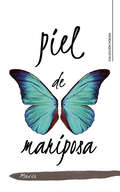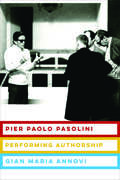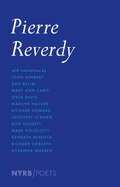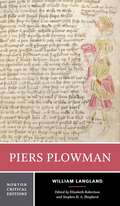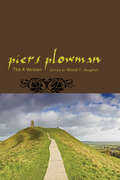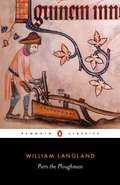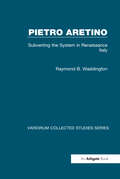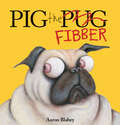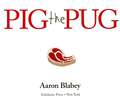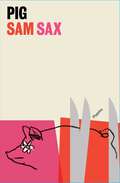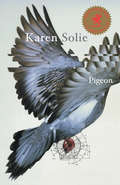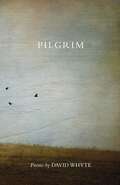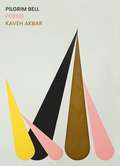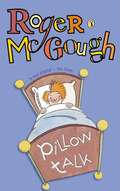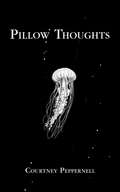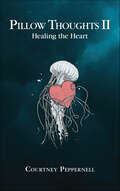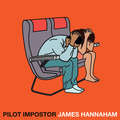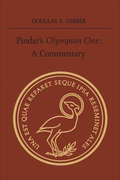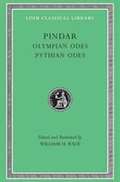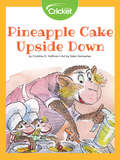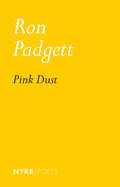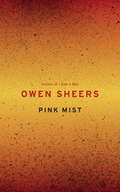- Table View
- List View
Piel de mariposa
by Mariló¿Quién quebró las alas de seda de una ingenua mariposa que volaba por el firmamento? Alguien rozó las alas sutiles de una mariposa ingenua que volaba por el universo con ternura, amor, desamor, dolor, llanto, desesperación, admiración, respeto y pasión. En este poemario, la autora comparte un amor apasionado -surgido en unas vacaciones- que no podrá ser correspondido porque su enamorado no es heterosexual. Cuando regresa a su ciudad, comparte esta experiencia con dos amigas a las que casualmente les ha sucedido lo mismo. Piel de mariposa también es un grito desesperado que reclama justicia, tolerancia y respeto hacia los más débiles: víctimas de atentados terroristas, mujeres víctimas de violencia de género, mujeres, niñas y adolescentes violadas, torturadas y asesinadas; y los migrantes.
Pier Paolo Pasolini: Performing Authorship
by Gian Maria AnnoviBefore his mysterious murder in 1975, Pier Paolo Pasolini had become famous—and infamous—not only for his groundbreaking films and literary works but also for his homosexuality and criticism of capitalism, colonialism, and Western materialism. In Pier Paolo Pasolini: Performing Authorship, Gian Maria Annovi revisits Pasolini's oeuvre to examine the author's performance as a way of assuming an antagonistic stance toward forms of artistic, social, and cultural oppression. Annovi connects Pasolini's notion of authorship to contemporary radical artistic practices and today's multimedia authorship.Annovi considers the entire range of Pasolini's work, including his poetry, narrative and documentary film, dramatic writings, and painting, as well as his often scandalous essays on politics, art, literature, and theory. He interprets Pasolini's multimedia authorial performance as a masochistic act to elicit rejection, generate hostility, and highlight the contradictions that structure a repressive society. Annovi shows how questions of authorial self-representation and self-projection relate to the artist's effort to undermine the assumptions of his audience and criticize the conformist practices that the culture industry and mass society impose on the author. Pasolini reveals the critical potential of his spectacular celebrity by using the author's corporeal or vocal presence to address issues of sexuality and identity, and through his strategic self-fashioning in films, paintings, and photographic portraits he destabilizes the audience's assumptions about the author.
Pierre Reverdy
by Lydia Davis Kenneth Rexroth John Ashbery Mary Ann Caws Pierre ReverdyThe great Pierre Reverdy, comrade to Picasso and Braque, peer and contemporary of Wallace Stevens and William Carlos Williams, is among the most mysteriously satisfying of twentieth-century poets, his poems an uncanny mixture of the simple and the sublime. Reverdy's poetry has exerted a special attraction on American poets, from Kenneth Rexroth to John Ashbery, and this new selection, featuring the work of fourteen distinguished translators, most of it appearing here for the first time, documents that ongoing relationship while offering readers the essential work of an extraordinary writer.Translated from the French by:John Ashbery Dan BellmMary Ann CawsLydia DavisMarilyn HackerRichard HowardGeoffrey O'BrienFrank O'HaraRon PadgettMark PolizzottiKenneth RexrothRichard SieburthPatricia TerryRosanna Warren
Pierre the Penguin: A True Story
by Jean MarzolloThis is the true story of Pierre, a small penguin in a big museum. It is also about the people at the California Academy of Sciences who worked together to help him through a hard time.
Piers Plowman
by William Langland Elizabeth Robertson Stephen H. A. ShepherdAstonishing in its cultural and theological scope, William Langland’s iconoclastic masterpiece is at once a historical relic and a deeply spiritual vision, probing not only the social and religious aristocracy but also the day-to-day realities of a largely voiceless proletariat class. E. Talbot Donaldson’s translation of the text has been selected for this Norton Critical Edition because of its skillful emulation of the original poem’s distinct alliterative verse. Selections of the authoritative Middle English text are also included for comparative analysis. "Sources and Backgrounds" includes a large collection of contemporary religious and historical documents pertaining to the poem, including selections from the Douai Bible, accounts of the plague, and legal statutes. "Criticism" includes twenty interpretive essays by leading medievalists, among them E. Talbot Donaldson, George Kane, Jill Mann, Derek Pearsall, C. David Benson, and Elizabeth D. Kirk. A Glossary and Selected Bibliography are also included.
Piers Plowman: The A Version
by Miceal F. VaughanThe fourteenth-century Piers Plowman is one of the most influential poems from the Age of Chaucer. Following the character Will on his quest for the true Christian life, the three dream narratives that make up this work address a number of pressing political, social, moral, and educational issues of the late Middle Ages. Míċeál F. Vaughan presents a fresh edition of the A version, an earlier and shorter version of this great work.Unlike the B and C versions, there is no modern, affordable edition of the A version available. For the first time in decades, students and scholars of medieval literature now have access to this important work. Vaughan’s clean, uncluttered text is accompanied by ample glossing of difficult Middle English words. An expansive introduction, which includes a narrative summary of the poem, textual notes, detailed endnotes, and a select bibliography frame the text, making this edition ideal for classroom use.This is the first classroom edition of the A version since Thomas A. Knott and David C. Fowler’s celebrated 1952 publication. Based on an early-fifteenth-century manuscript from the University of Oxford’s Bodleian Library, Vaughan’s text offers a unique rendition of the poem, and it is the first modern edition not to attribute the poem to William Langland. By conservatively editing one important witness of Piers Plowman, Vaughan takes a new generation of students to an early version of this great medieval poem.
Piers the Ploughman
by William LanglandWritten by a fourteenth-century cleric, this spiritual allegory explores man in relation to his ultimate destiny against the background of teeming, colorful medieval life.
Pietro Aretino: Subverting the System in Renaissance Italy (Variorum Collected Studies)
by Raymond B. WaddingtonThe essays gathered together in this volume follow the career of the sixteenth-century courtier-poet Pietro Aretino. Part One introduces the author during the 1520s in Rome with his remarkable first comedy, La Cortigiana. With Aretino’s move to Venice (1527), he found a congenial life-long home in which he could flourish. Yet the transition from courtier poet to poligrafo, vernacular writer for the popular press, was slow and difficult before he adopted a new career model derived from Erasmus; even then, he contemplated abandoning Italy for the Ottoman Empire. Part Two examines his work as a satirist in the mid-thirties with the Ragionamenti, the dialogues that branded him a pornographer when the satiric targets lost their immediacy. He augmented the satiric writings by creating the visual persona of a satirist in various media - woodcut author portraits in books, engravings, and particularly portrait medals. The complementary, verbal-visual relationship is the subject of this pairing. Aretino’s religious writings have not been taken seriously until quite recently. The two essays presented here trace Aretino’s associations with Erasmians, spirituali, heretics, and apostates, arguing that his own convictions were sincere, suggesting that he became a Nicodemite during the gathering Counter-Reformation repression of the 1540s. The concluding essays consider two examples of Aretino’s continuing influence in different media, visual arts and literature: on the brilliant, eccentric artist, Giuseppe Arcimboldo, and on a great English comedy, Ben Jonson’s Volpone.
Pig Fun (HOP Book Companion 7--Hooked on Phonics)
by Leslie Mcguire Mitchell RoseWhile HOP Companion Books can be used independently, this series of books has been designed as a supplement to Level 1 of the Hooked on Phonics® Learn to Read program. Find out what a pig likes to do.
Pig the Pug (Pig The Pug Ser.)
by Aaron BlabeyPig is a selfish pug who does not want to share his toys with his canine housemate, Trevor - until an accident teaches him the value of friendship.
Pig: Poems
by Sam SaxFrom the brilliantly talented National Poetry Series and James Laughlin Award winner comes a third collection of poems that uses the humble pig as a lens to explore the body, faith, desire, and power.This imaginative and singular poetry collection interrogates the broadest ideas surrounding the humble pig—farm animal, men/masculinity, police and state violence, desire, queerness, global food systems, religion/Judaism and law—to reimagine various chaotic histories of the body, faith, ecology, desire, hygiene, and power. Sam Sax draws on autobiography and history to create poems that explore topics ranging from drag queens and Miss Piggy to pig farming and hog lagoons. Collectively, these poems, borne of Sax&’s obsession, offer a varied picture of what it means to be a human being. Delivered in a variety of forms, infused with humor, grace, sadness, and anger, Pig is a wholly unique collection from a virtuosic and original poet.
Pigeon: Poems
by Karen SolieKaren Solie launched to prominence with her first collection of poems, Short Haul Engine (2001), finalist for the Griffin Poetry Prize and winner of many other awards and citations. She continued her upward trajectory with Modern and Normal (2005), and is now considered one of Canada's best poets. Pigeon is yet another leap forward for this singer of existential bewilderment. These poems are X-rays of our delusions and mistaken perceptions, explorations of violence, bad luck, fate, creeping catastrophe, love, and the eros of danger. Once again, Solie shows that her ear is impeccable, her poetic intelligence rare and razor-sharp.
Pilgrim
by David WhyteIn this collection, David Whyte looks at the great questions of human life through the eyes of the pilgrim: someone passing through relatively quickly, looking for the biggest context they can find or imagine, someone dependent on friendship, hospitality and help from friends and strangers alike, someone who has to ask for visible and invisible help. A pilgrim is someone up for adventure and good company. One of the central themes of a pilgrimage is internal resilience, the necessity for following a certain star not seen or perceived by anyone else, an internal migration running parallel to the outer road, keeping the journey in the world relevant and true. There is a necessity for hardiness, for shelter, for risk, for companionship, for vulnerability; for creating a more beautiful mind. Above all, a pilgrimage requires us to ask for help, to develop an ability to recognize when it is being offered, and the humor, humility and open hands to receive it.
Pilgrim Bell: Poems
by Kaveh AkbarKaveh Akbar’s exquisite, highly anticipated follow-up to Calling a Wolf a WolfWith formal virtuosity and ruthless precision, Kaveh Akbar’s second collection takes its readers on a spiritual journey of disavowal, fiercely attendant to the presence of divinity where artifacts of self and belonging have been shed. How does one recover from addiction without destroying the self-as-addict? And if living justly in a nation that would see them erased is, too, a kind of self-destruction, what does one do with the body’s question, “what now shall I repair?” Here, Akbar responds with prayer as an act of devotion to dissonance—the infinite void of a loved one’s absence, the indulgence of austerity, making a life as a Muslim in an Islamophobic nation—teasing the sacred out of silence and stillness.Richly crafted and generous, Pilgrim Bell’s linguistic rigor is tuned to the register of this moment and any moment. As the swinging soul crashes into its limits, against the atrocities of the American empire, and through a profoundly human capacity for cruelty and grace, these brilliant poems dare to exist in the empty space where song lives—resonant, revelatory, and holy.
Pillow Talk: A Book of Poems
by Roger McGoughWouldn't it be funny if you didn't have a nose? The brilliant and clever Roger McGough asks this and other important questions in this marvellous collection. He also tells you exactly when to cut your fingernails, how to have a real pillow fight and what happens when a burp escapes!
Pillow Thoughts
by Courtney Peppernell<P>Pillow Thoughts is a collection of poetry and prose about heartbreak, love, and raw emotions.<P> It is divided into sections to read when you feel you need them most.
Pillow Thoughts II: Healing the Heart
by Courtney PeppernellCourtney Peppernell understands that healing is a process, and Pillow Thoughts II – second in the Pillow Thoughts series – eloquently captures the time and experience one goes through on their journey to peace through restoration. With words for those mending after loss or rediscovering their strength, Healing the Heart celebrates resilience, self-acceptance, and finding beauty in vulnerability.A collection of inspirational and comforting poems for anyone who is healing from a broken heart, and a thoughtful gift for those navigating breakups, loss, or personal challenges — a healing companion to remind them they’re not alone.
Pilot Impostor
by James HannahamA startling, shape-shifting book of prose and images that draws on an unexpected pair of inspirations—the poetry of Fernando Pessoa and the history of air disasters—to investigate con men, identity politics, failures of leadership, the privilege of ineptitude, the slave trade, and the nature of consciousness.Early in 2017, on a plane from Cape Verde to Lisbon, author and visual artist James Hannaham started reading Pessoa & Co., Richard Zenith's English translation of Fernando Pessoa's selected poetry. This was two months after Trump's presidential election; like many people, ideas about unfitness for service and failures of leadership were on his mind. Imagine his consternation upon discovering the first line of the first poem in the book: "I've never kept sheep/But it's as if I did."The Portuguese, Hannaham had been musing, were responsible for jump-starting colonialism and the slave trade. Pessoa published one book in Portuguese in his lifetime, Mensagem, which consisted of paeans to European explorers. He also invented about seventy-five alter egos, each with a unique name and style, long before aliases and avatars became a feature of modern culture.Hannaham felt compelled to engage with Pessoa's work. Once in Lisbon, he began a practice of reading a poem from Zenith's anthology and responding in whatever mode seemed to click. Even before his trip, however, he had become fascinated by Air Disasters, a TV show that tells the story of different plane crashes in each of its episodes. These stories—as well as the textures and squares of the city he was visiting—began to resonate with his concerns and Pessoa&’s, and make their way into the book.Through its inspirations and juxtapositions and its agile shifts of voice and form—from meme to fiction to aphorism to screenshot to lyric—the book leads us to reckon with the most universal questions. What is the self? What holds the self—multiple, fragmented, performative, increasingly algorithmically controlled, constantly under threat of death—intact and aloft?
Pindar and the Emergence of Literature
by Boris MaslovPindar and the Emergence of Literature places Pindar in the context of the evolution of Archaic Greek poetics. While presenting an in-depth introduction to diverse aspects of Pindar's art (authorial metapoetics, imagery, genre hybridization, religion, social context, and dialect), it seeks to establish a middle ground between cultural contextualism and literary history, paying attention both to poetry's historical milieu and its uncanny capacity to endure in time. With that methodological objective, the book marshals a new version of historical poetics, drawing both on theorists usually associated with this approach, such as Alexander Veselovsky, Mikhail Bakhtin, and Olga Freidenberg, and on T. S. Eliot, Hans Blumenberg, Fredric Jameson, and Stephen Greenblatt. The ultimate literary-historical problem posed by Pindar's poetics, which this book sets out to solve, is the transformation of pre-literary structures rooted in folk communal art into elements that still inform our notion of literature.
Pindar's 'Olympian One': A Commentary
by Douglas E. GerberDrawing on an extensive knowledge of the critical history of Olympian One, Professor Gerber here presents a thorough analysis of the language thought, myth, structure, and poetic technique of Pindar's most famous ode. He deals with virtually every word in the poem, elucidating disputed passages, defining Pindar's use of imagery and myth and his structural techniques, and revealing the significance of his statements about the gods, the victor, and his own poetic practice. In doing so he makes a major contribution to Pindaric studies, aiding an understanding of this ode in particular, and of the poet's other works in general.
Pindar: Olympian Odes, Pythian Odes
by William H. Race Pindar<P><P>My aim has been to produce a readable, clear translation that reflects the grammar of the original Greek, while following the lineation of the Greek text as closely as normal English word order allows. When enjambment of a word is natural to the English, I have imitated the Greek by preserving it; when not, I have maintained the Greek grammatical structure. <P><P> Advisory: Bookshare has learned that this book offers only partial accessibility. We have kept it in the collection because it is useful for some of our members. To explore further access options with us, please contact us through the Book Quality link on the right sidebar. Benetech is actively working on projects to improve accessibility issues such as these.
Pineapple Cake Upside Down
by Christina D. HuffmanThe monkey family makes and eats pineapple upside-down cake.
Pink Dust
by Ron PadgettRon Padgett is one of America's best-known and most acclaimed poets. Admired by John Ashbery, Jim Jarmusch, and Anne Waldman, his poems have moved and delighted generations of readers with their inventiveness, their gentle humor, and above all their ability to elicit wonder. These qualities are as evident as ever in Pink Dust, whose title refers to the residue from all the author's erasers, swept away or blown into the air. Like that dust, this is a book of memories rubbing up against the present. Its poignant reflections on old age shimmer with all the insouciance of youth.
Pink Mist
by Owen SheersFrom the author of I Saw a Man comes a powerful drama in verse that captures both the trauma of modern warfare and the difficulty of transitioning back to normal life after combat. In early 2008, three young friends from Bristol decide to join the army and are deployed to the conflict in Afghanistan. Within a short space of time the three men return to the women in their lives—a wife, a mother, a girlfriend—all of whom must now share the psychological and physical aftershocks of military service. Written from the points of view of each soldier, Sheers explores not only their experiences in the field of battle, but also the grueling process of recovery following a debilitating injury, the strain of PTSD on a new marriage, and the emotional toll of survivor's guilt among soldiers and their loved ones at home. Drawing on interviews with soldiers and their families, Pink Mist illuminates the enduring human cost of war and its all too often devastating effect upon the young lives pulled into its orbit. A work of great dramatic power, documentary integrity, and emotional intensity.
